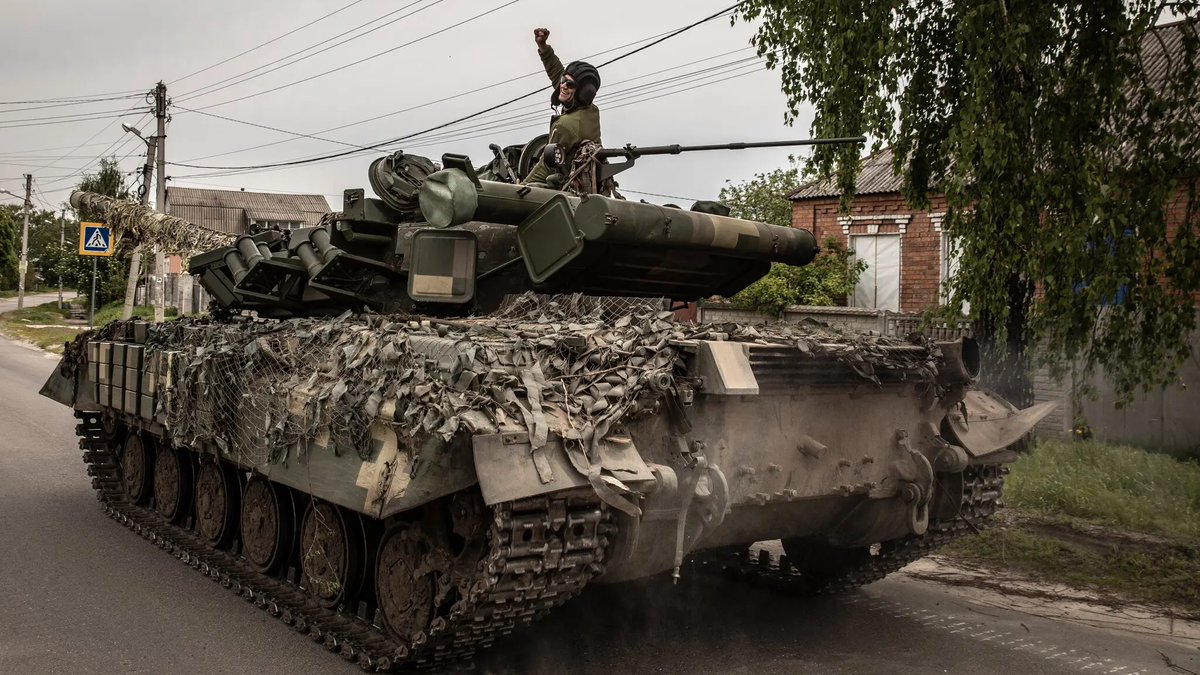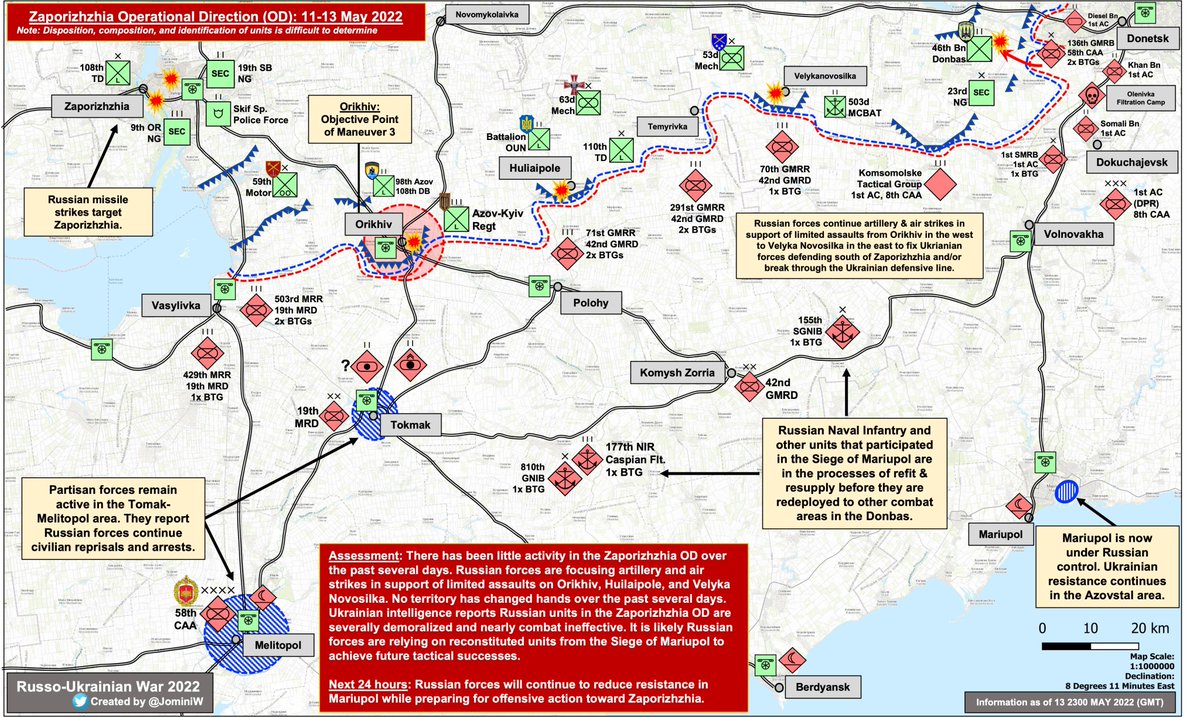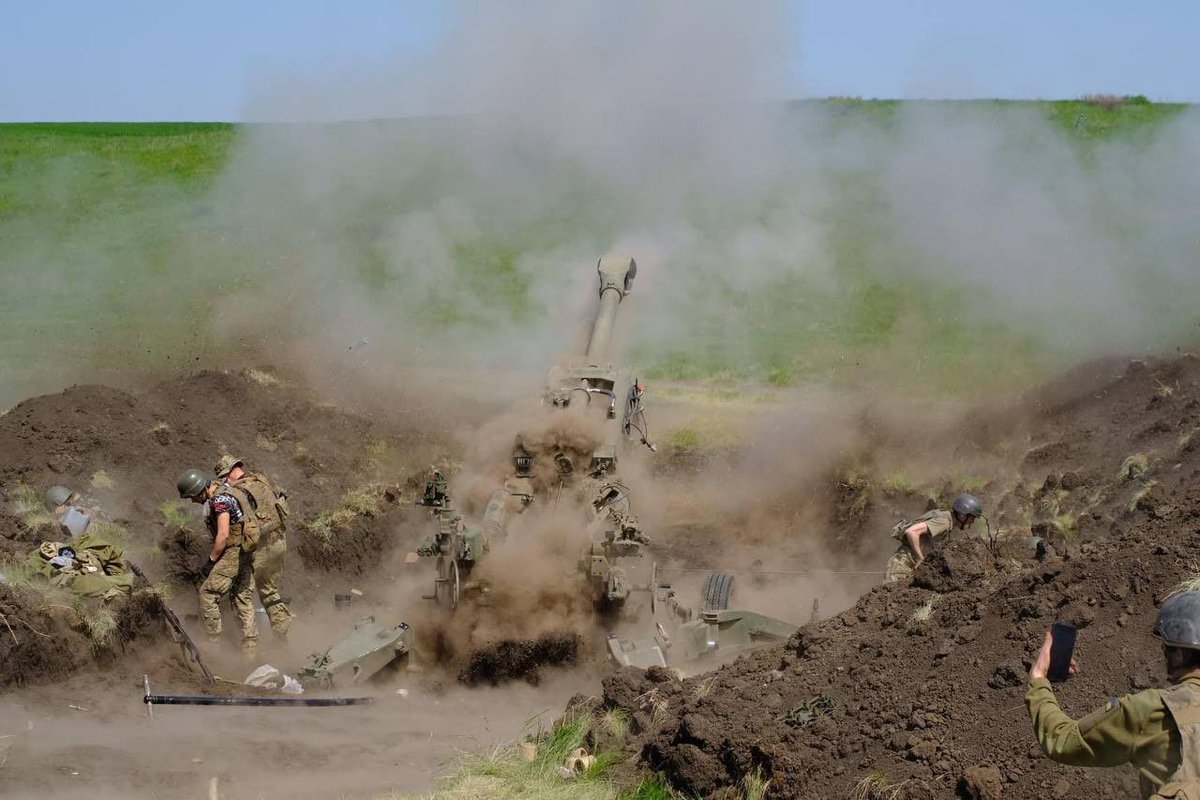The battle of Kharkiv has been won by #Ukraine, with Russian forces withdrawing to the north & east. Today, analysis on what is next for Ukraine’s military as it exploits a faltering Russian eastern offensive. 1/25
2/ The war in the east, and the war in #Ukraine more generally, is approaching an important turning point. https://www.vox.com/policy-and-politics/2022/5/12/23065144/russia-donbas-offensive-may-slow-flailing">https://www.vox.com/policy-an...
3/ The Ukrainian success in the battle for Kharkiv is significant. It sees the recapture of Ukrainian territory and will ensure the city is out of Russian field artillery range. These are important humanitarian & political achievements for #Ukraine. https://www.forbes.com/sites/michaelpeck/2022/05/11/ukraines-counteroffensive-has-broken-russias-siege-of-kharkiv/?sh=29ac699ed993">https://www.forbes.com/sites/mic...
4/ It also gives the Ukrainian Army another huge morale & confidence boost. As they did in the north, they have shown again that they can defend, and then go on the offensive to recapture their land from the Russians. They continue to out-think and out-fight the Russian Army.
5/ Despite the Russians recently reorienting their operational design on eastern Ukraine as its main effort, they have yet to make significant gains. Indeed, they have been fought to a near standstill by the Ukrainians.
6/ Not only are the Russians in trouble in the east, but the entire Russian campaign in Ukraine is also close to culminating. I would highlight – this is not the same as a Russian defeat. It just means that Russia may shortly be unable to conduct offensive operations.
7/ Russia, theoretically, might construct some last gasp offensive out of Crimea or elsewhere in the south. But this would be akin to the WW2 German Ardennes Offensive – tactically dangerous for a short time but ultimately operationally and strategically futile.
8/ Ukraine now has several options for what they might do in the wake of success in the Battle of Kharkiv. Issues such as forces available, logistics, air support and geography will be important. But there are probably two over-riding considerations: timing & exploitation limits.
9/ Timing. The Ukrainians got their timing just right for their north east offensive around Kharkiv. Now, they have to pick the right moment for a potential wider counter offensive in the east.
10/ This means they must balance continued attrition of the Russians during their current offensive and attacking a culminated Russian force before they can establish a well-developed scheme of defensive maneuver in the east.
11/ The region to the east of Kharkiv is vulnerable to a Ukrainian advance. Not only are the majority of Russian forces further south and east of this area, seizing this region (to the east of the Donets) poses a threat to ground supply routes for Russia& #39;s eastern offensive.
12/ It will be an attractive option for Ukraine. While the ground is better suited for the defender (Russia), it is always better fight over the worst ground than through the greatest concentration of enemy. This, in many respects, has been Ukraine’s approach throughout the war.
13/ By attacking Russian rear areas, weakly defended locations and logistic hubs / convoys, the Ukrainians have forced Russian withdrawals in the north and northeast.
14/ While Russian forces in the east are stronger than those faced in the north and northeast, any interference with their supply lines will have a significant impact on Russian combat operations on the Izium axis of advance.
15/ Of course, Ukrainian success in any offensive is not guaranteed. Operational outcomes range from a Russian collapse followed by withdrawal; they fight each other to a standstill, followed by stalemate; or, potentially, a Ukrainian defeat. In war there are no certainties.
16/ Summarising, Ukraine doesn’t have a lot of time to assemble the forces & support if they are to conduct another counter offensive in the east. They have to strike before the Russians shift to a defensive posture. The Russians will be much harder to push back if that occurs.
17/ Exploitation limits. There has been speculation about how far the Ukrainians might carry their offensives. In particular, might the Ukrainians advance on Belgorod in Russia? This is probably unlikely for several reasons.
18/ First, the Ukrainians have already proved that they can out fight, outthink and defeat the Russian Army. They don’t need to go into Russia to re-prove that.
19/ 2nd, President Zelensky has gained global influence as President of a country that has been invaded. For him to engage in similar behaviour would have an impact on his influence in the outside world. https://www.president.gov.ua/en/news/kozhnogo-dnya-pracyuvati-tak-shob-vijna-bula-korotshoyu-v-co-75049">https://www.president.gov.ua/en/news/k...
20/ 3rd, as Russia has found, invading another country is much harder than defending your own. The motivation for soldiers ‘invading’ another country is different to the motivation when defending one’s own nation. The Ukrainians are clever enough to understand this.
21/ Finally, any Ukrainian incursion into Russia would (for Putin) validate the sense of external existential threat that Russia is under, and that Putin described in his Victory Day speech. The Ukrainian President (as well as the US & NATO) would want to avoid this.
22/ Within Ukraine’s borders, do they seek to only recapture ground taken by Russia since 24 February, or something more? The Ukrainian President will balance reclaiming Ukrainian territory, retaining Western support & not pushing the Russians to use chem / nuclear weapons.
23/ A window of opportunity is opening for Ukrainian operational design in the east. While defending the Kharkiv region they have just re-secured, they may be able to conduct an operational level strike across the Donets and into the rear of Russia’s axis of advance on Izium.
24/ With their recent experience, home ground advantage & western support, there is no one in the world better at making such a decision than the Ukrainian high command. It will be their decisions, not Russia’s, that could result in an important turning point in this war. End
25/ Thanks to @IA_Pomerenko @jominiW @UAweapons @Archer83Able @nytimes @RALee85 @HN_Schlottman and @Blue_Sauron, whose images I used in this thread.

 Read on Twitter
Read on Twitter






